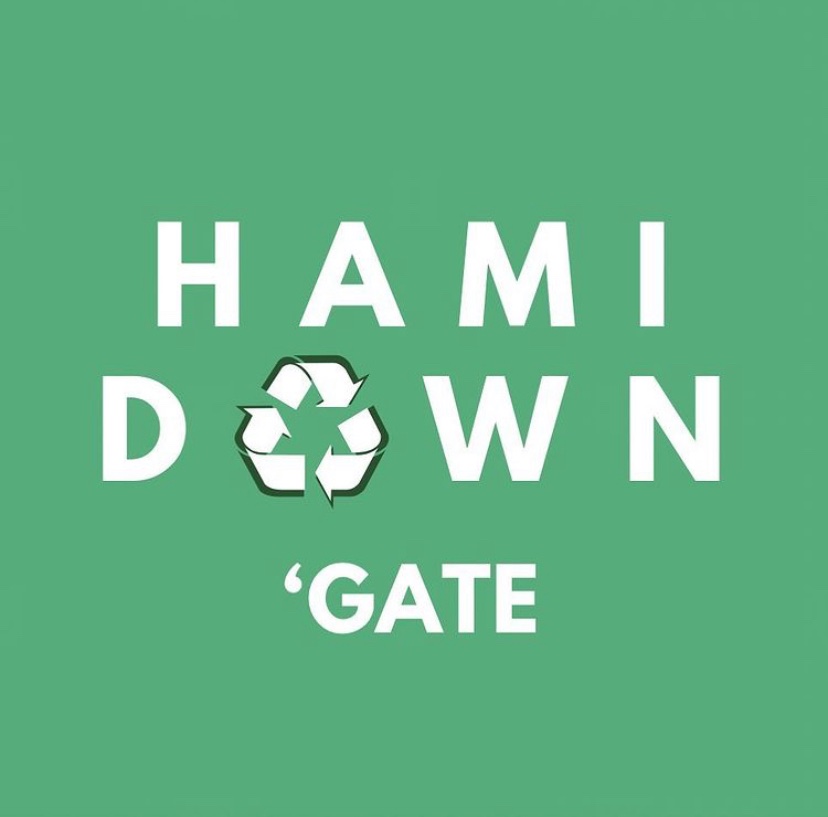New Hami-Down Launches Campus-Wide Sustainable Clothes Sharing Platform
Sophomores Leigh Frankel and Cameron Stokes recently announced the arrival of their new Thought into Action (TIA) project, Hami-Down, an online platform for buying second-hand and re-selling selling goods “in a manner that reduces cost, increases convenience and minimizes carbon impact,” according to an Instagram post by @hamidown_gate.
Stokes came up with the idea for Hami-Down last summer after contemplating how many clothes she saw go to waste during her first year at Colgate.
“With so many last minute outfits and eventually relying on grabbing random tops from my roommates, I realized there was real potential for a clothes-sharing space at Colgate,” Stokes said.
Frankel echoed Stokes, emphasizing Colgate students’ need for a program like this.
“Everyone always ends up sharing clothes, frantically buying random costumes on Amazon or eventually ends up with two of the same shirt,” Frankel said.“[The goal of Hami-Down is] to bring everyone on campus together and make them aware of the mass amounts of clothes we all have and could be sharing. We want everyone to look to Hami-Down first when you don’t have something, and then go to shop online.”
Both Frankel and Stokes are from Los Angeles, and therefore cannot take everything they want to bring with them to school on an airplane.
“We didn’t know everything we would need before getting to school, and once we got here the only option was to online shop or drive all the way to Syracuse. We want to give people the chance to shop locally on the Colgate campus and use their community to find cute clothes,” Frankel said.
Sophomore Harper de Boer also joined the Hami-Down team earlier this year, saying she saw the opportunity to foster a buying and selling community within Colgate after studying consumption habits on campus.
“Specifically, in regards to the fashion industry, I feel as if fast fashion is unsustainable and problematic. Buyers, especially those from our generation, are beginning to move away from this type of consumption to one that highlights sustainability and accessibility,” de Boer said. “Hami-Down is a great platform in which individuals can buy and sell their goods with ease with the broader Colgate community.”
Students interested in selling items can submit a minimum price as well as a description on the Google Form linked in the group’s Instagram bio. Items will be posted on the Instagram page, and ten percent of the profit will go towards Hami-Down. The program also allows for donations through Stokes and Frankel.
Sophomore Matt Newfield already has clothes ready to be sold on Hami-Down.
“I have a bunch of stuff I need to get rid of, so I am pumped that I can make money off it. I am excited to support a student-led business and am looking forward to seeing the Colgate student body coming together,” Newfield said.
Additionally, Hami-Down wants to create a platform for seniors moving out as well as first-years moving in. Seniors can donate or sell things they no longer want instead of having to bring them home. Hami-Down says they will be prepared to accept items at the end of this semester.
In minimizing carbon impact and addressing issues of sustainability and waste on campus, Hami-Down wants to reduce waste from shipping, alleviate the amount of packages coming into the mail-room and lessen the reliance of students looking to online shopping as their main source for incoming clothes.
“[Hami-Down aims to] reduce waste, bring the campus together through one platform and create a sustainable, fun way for students to interact and share clothes conveniently,” Frankel said.
Sara Fraser is a junior from Memphis, TN concentrating in environmental studies with a minor in sociology. She has previously served as a staff writer...











